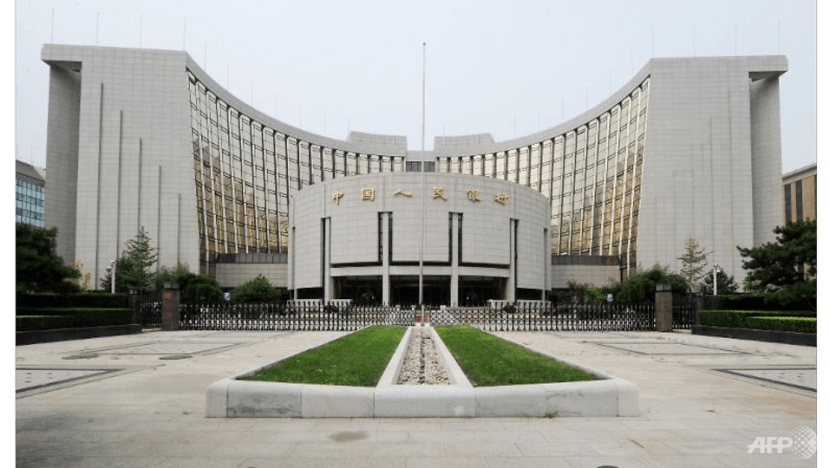Ruchir Sharma
21 Jun 2022
NEW YORK: China’s rise on the world stage is perhaps this century’s most frequently repeated news story. The country’s economic footprint has expanded spectacularly. Its widening military reach has made recent headlines.
Yet as an aspiring financial superpower, China is going nowhere.
This has not happened before. The United States rose as an economic force and then as a financial power, before the dollar became the world’s leading currency in the 1920s. Previous empires, from Britain to 15th century Portugal, followed a similar arc, as investor Ray Dalio recently showed.
China is breaking the mould, rising rapidly as an economic force but glacially as a financial power.
In doing so, the country is defying expectations. Two decades ago, when China opened to global trade, it seemed on track for global economic and financial supremacy.
Around 2010, Beijing began broadcasting its financial ambitions – which included establishing the yuan as a global currency. Then came a burst of progress, followed by retreat.
Since 2000, China’s share of global gross domestic product has almost quintupled from 4 per cent to 18 per cent and its share of global trade has quadrupled to 15 per cent. No other economy has grown faster. Yet its stock market has been among the world’s weakest performers.
CHINESE DISTRUST THEIR OWN FINANCIAL SYSTEM
China’s rise has such a grip on the popular imagination that many analysts still see it everywhere. They depict the yuan’s tiny 3 per cent share of global central bank reserves as quick progress because it is up from 1 per cent five years ago.
 |
| Headquarters of the People's Bank of China (PBoC), the Chinese central bank. (Photo: AFP/Mark Ralston) |
But this share is similar to those of far smaller economies like Canada or Australia, and well behind what analysts have been projecting.
The hurdle is trust: Foreigners are wary of a meddling state, but more importantly, the Chinese distrust their own financial system. China has printed so much money to stimulate growth over the past decade, the money supply now dwarfs the economy and markets.
That capital may flee when given the chance. When Beijing was facing significant outflows seven years ago, the government imposed controls to prevent capital flight. It has yet to lift them.
Instead, China has turned financially inward. Since 2015, the yuan share of payments through the Swift network for international bank transactions has fallen by a fifth, from an already negligible level under 3 per cent.
A widely followed index that ranks 165 nations by capital account openness puts China at 106th, tied with tiny states like Madagascar and Moldova.
While Chinese investors are restricted from investing abroad, foreigners are scared away from China by erratic government attempts to control the market. That helps explain why unlike in other nations, stocks in China do not rise and fall with economic growth.
GLOBAL DOUBT ABOUT CHINA MARKET LIMITS YUAN’S APPEAL
Economist Jonathan Anderson recently wrote that, considering its volatile prices and the vastness of its money supply relative to its markets, China is less comparable to emerging markets such as Brazil and Thailand than to frontier markets like Kazakhstan or Nigeria – and “should not be part of a standard EM portfolio.”
Often it is not. Foreigners own about 5 per cent of stocks in China, versus 25 to 30 per cent in other emerging markets, and about 3 per cent of bonds in China, compared to around 20 per cent in other developing nations.
Global doubt about China’s markets limits the yuan’s appeal. Today, over half of all countries use the dollar as their anchor, a soft peg to manage their currencies. None use the yuan. About 90 per cent of foreign exchange transactions involve the US dollar, while only 5 per cent use yuan.
This differs from the success stories China seeks to emulate. During its boom in the 1980s, Japan was rising both as a financial and economy power. The Japanese yen and stocks reflected that strength, and Tokyo emerged as a global financial centre.
Today, the yuan is not viewed as a safe haven, Chinese stocks languish and no Chinese city is more than a regional financial centre.
China still aims to become a financial superpower. Its leaders understand that as a country gets richer, it has greater need for a functional financial system. The Chinese government has seen how the mighty dollar allowed the US to militarise finance in sanctioning Russia, and wants that same leverage.
But for now, Beijing doesn’t have the confidence to take the basic steps of lifting capital controls and making the yuan fully convertible. Until it does, China will never fully realise its superpower ambitions.
No comments:
Post a Comment